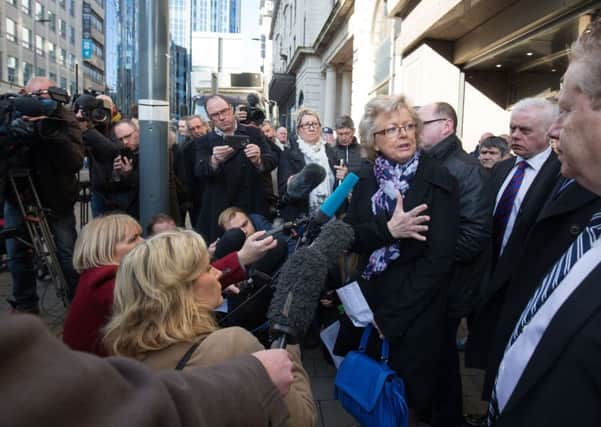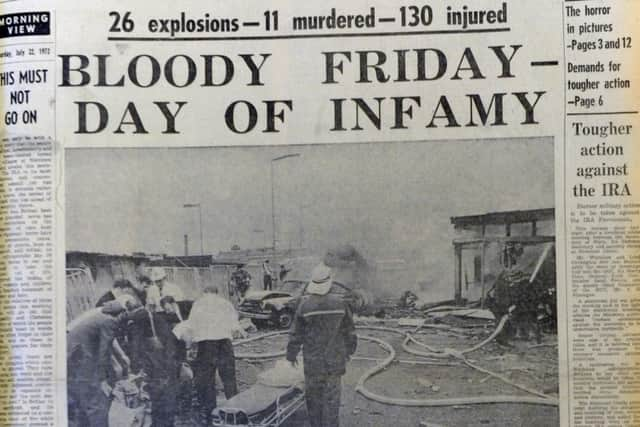Birmingham ruling may see terror suspects named in legacy inquests


Last week a High Court ruling quashed a decision by the coroner in the Birmingham bombs inquest to exclude the question of who was behind the two IRA bombs, which killed 21 people in 1974.
The coroner in the case announced yesterday that he would appeal the decision.
Advertisement
Hide AdAdvertisement
Hide AdUUP MLA Doug Beattie said the ruling “could well have implications for legacy cases in Northern Ireland”.


He added: “Such a departure could also help address the imbalance which currently exists. Ninety per cent of deaths during the Troubles were the result of terrorist groupings, both loyalist and republican. Only 10% were attributable to the security forces.”
The lack of written records held by terrorist groups means investigations of the past have focused disproportionately on the security forces – because they do have records, he said.
“If inquests are now in a position to name those who are believed to be responsible for atrocities such as Bloody Friday, Claudy, Kingsmills, La Mon and Enniskillen to name but a few, then I for one would welcome that.”
Advertisement
Hide AdAdvertisement
Hide AdColin Worton, whose brother Kenneth was murdered in the Kingsmills massacre in 1976 also welcomed the news.


“I would like the IRA suspects to be named in the [ongoing] Kingsmills inquest instead of having them being given ciphers,” he said. “We will be raising this matter with our legal team this week.”
Victims’ campaigner Willie Frazer said the news sets a precedent which he hopes will be followed by the coroner at the Kingsmills inquest.
“A number of the suspects have terrorist convictions and OTR letters,” he said. “This certainly leaves the door open for us to consider a judicial review if suspects aren’t named.”
Advertisement
Hide AdAdvertisement
Hide AdMark Thompson of Relatives for Justice also welcomed the news. “The implication of this ruling is that anyone could be named, including soldiers, policemen and agents involved in state killings and collusion as well as other combatants,” he said.
But Alan Barry, co-founder of Justice for Northern Ireland Veterans, said a range of former security force members have already being named in legacy inquests. “This matters as we have a continued threat from dissident republican groups,” he said.
The Kingsmills inquest has seen Captain Robert Nairac publicly accused of being an English-accented gunman in the atrocity, while the deceased gunman suspected of carrying out that role is identified only as S37.
A spokeswoman for the lord chief justice said coroners in Northern Ireland would have to decide what the impact might be.
“This is a matter which is decided upon by the coroner presiding over the inquest and will be considered on a case by case basis,” she said.
Neither Sinn Fein nor the DUP offered any comment.